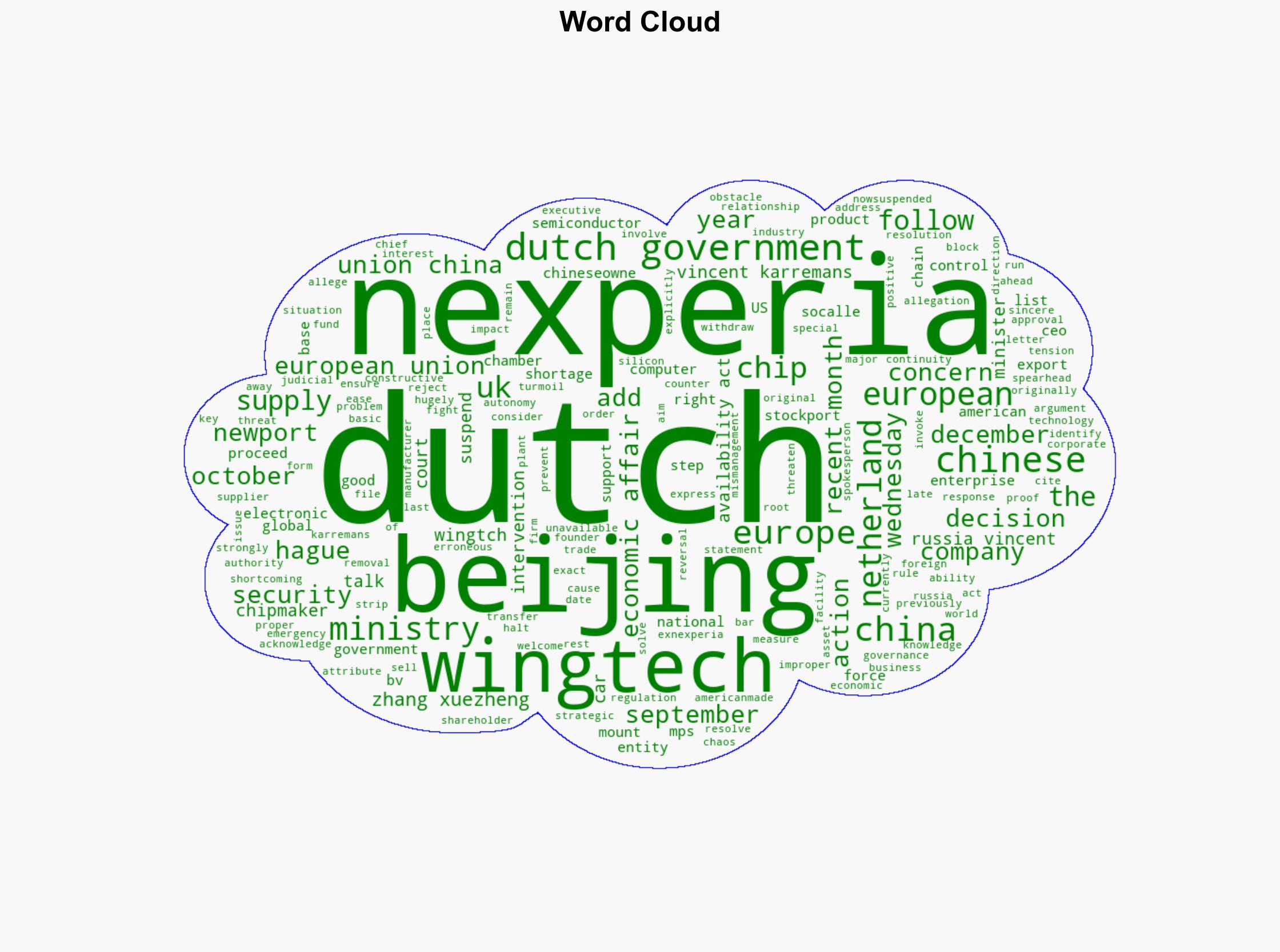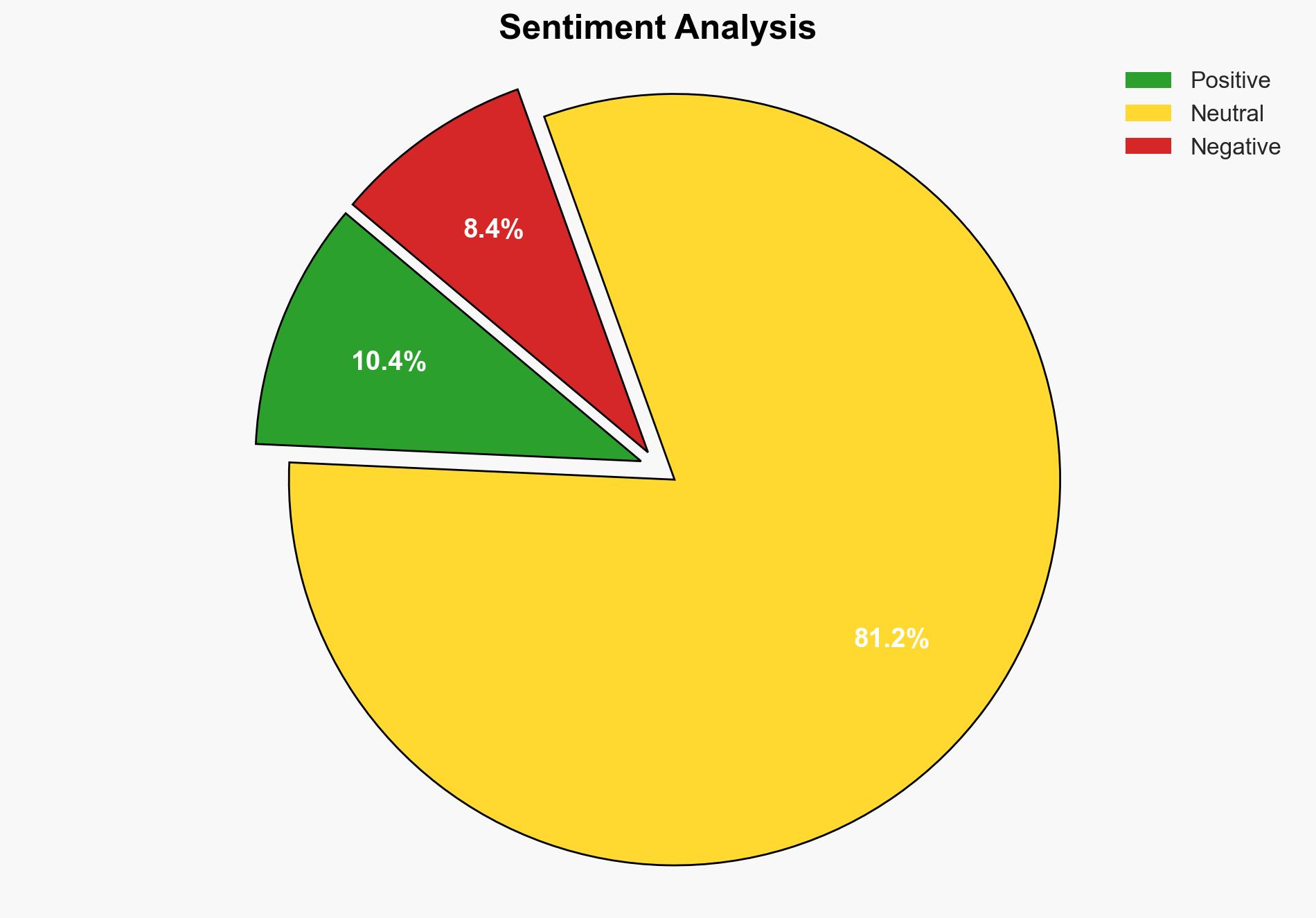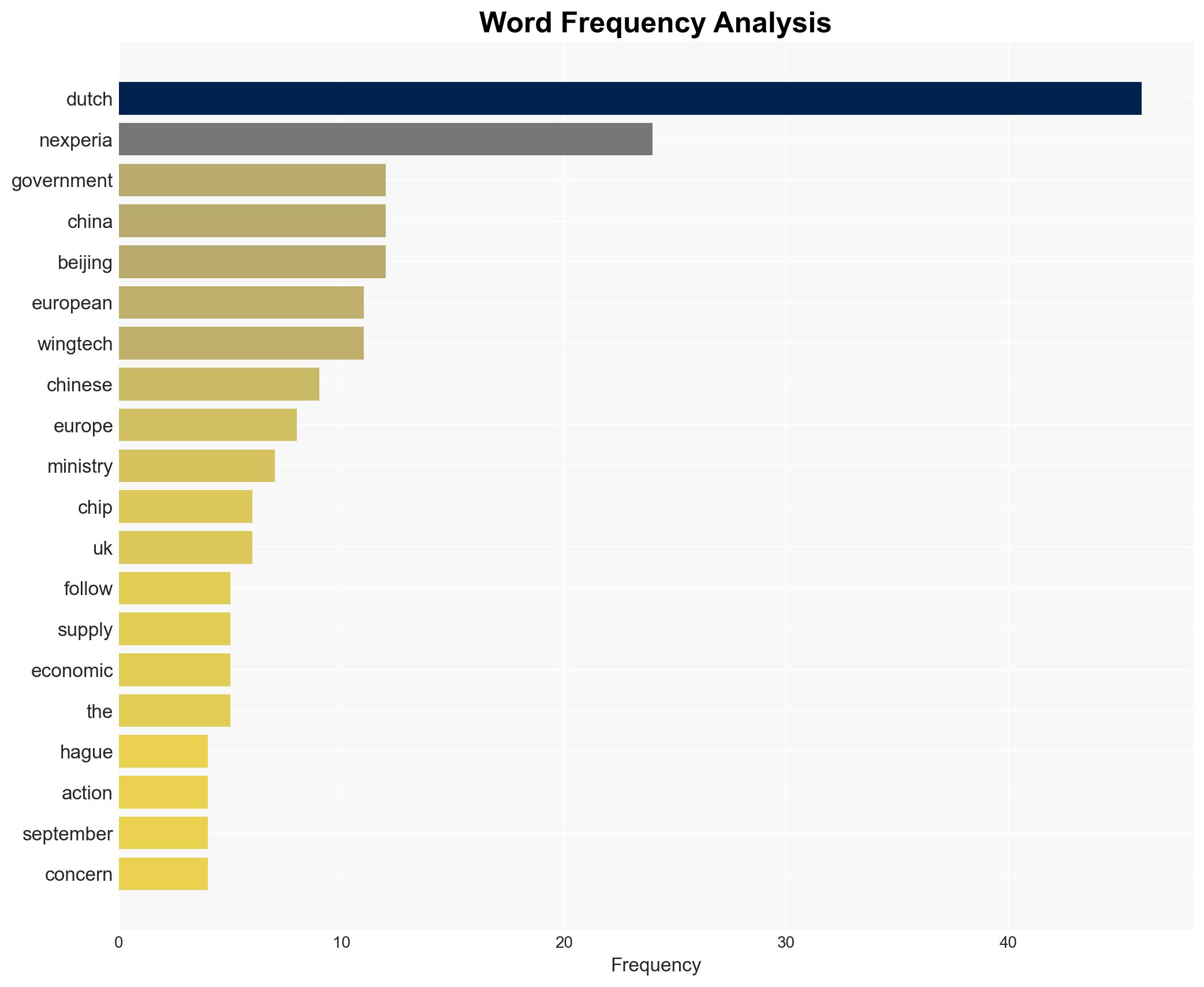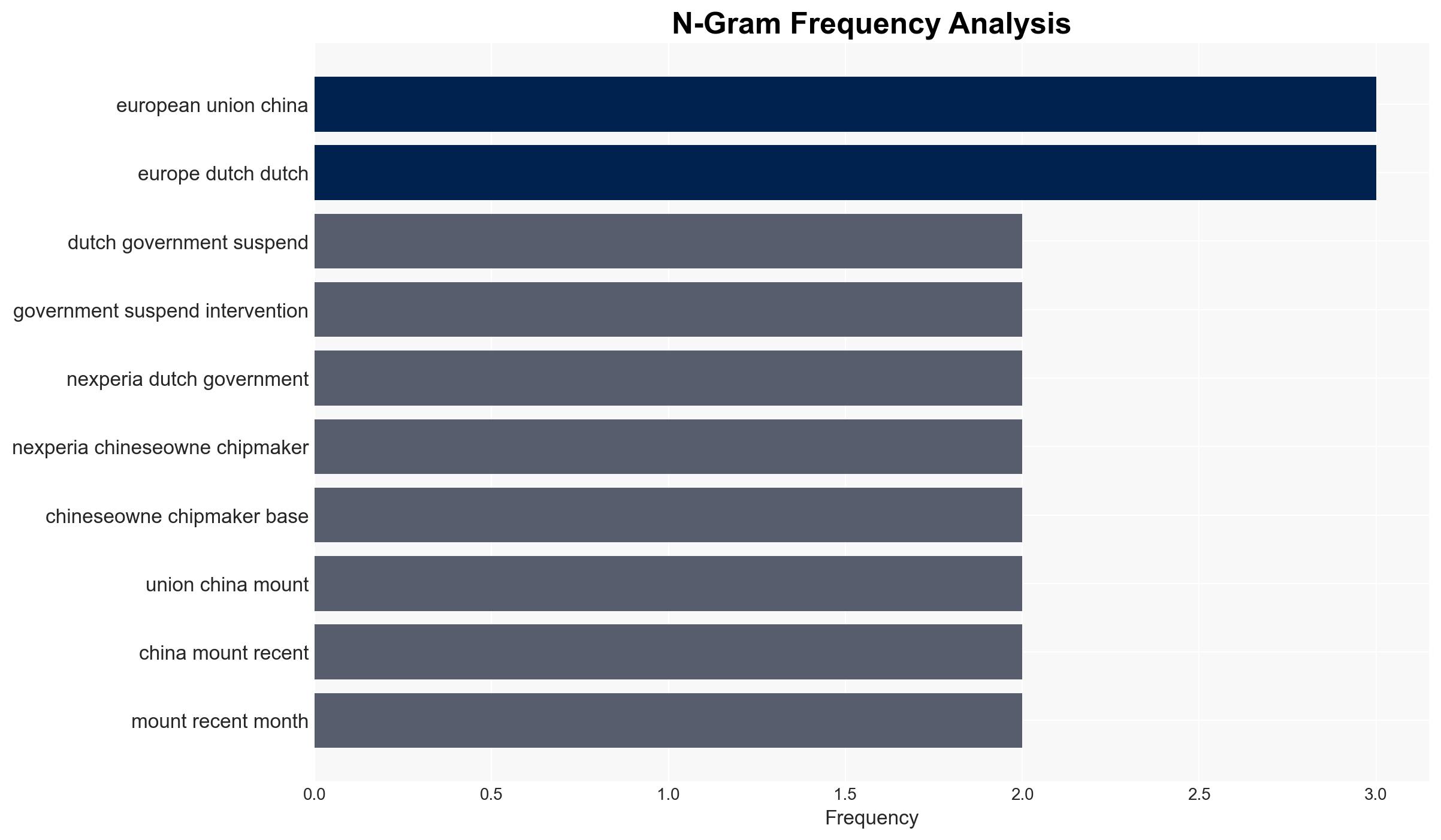Dutch government suspends intervention into chipmaker Nexperia – BBC News
Published on: 2025-11-19
AI-powered OSINT brief from verified open sources. Automated NLP signal extraction with human verification. See our Methodology and Why WorldWideWatchers.
Intelligence Report: Dutch Government Suspends Intervention into Chipmaker Nexperia
1. BLUF (Bottom Line Up Front)
The Dutch government’s decision to suspend its intervention in Nexperia, a Chinese-owned chipmaker, is likely a strategic move to ease tensions with China and ensure semiconductor supply stability in Europe. The most supported hypothesis is that this decision is part of broader diplomatic efforts to stabilize trade relations with China. Confidence level: Moderate. Recommended action: Monitor ongoing diplomatic engagements and assess potential shifts in European semiconductor supply chain policies.
2. Competing Hypotheses
Hypothesis 1: The suspension is a strategic move to de-escalate tensions with China and secure semiconductor supply chains in Europe. This is supported by the Dutch government’s statement on constructive talks with Beijing and the need for chip availability.
Hypothesis 2: The suspension is a temporary measure to reassess the legal and economic implications of the intervention, possibly influenced by internal or external pressures. This is suggested by the Dutch court’s involvement and the previous national security concerns raised.
Hypothesis 1 is more likely due to the explicit mention of easing tensions and the strategic importance of semiconductor supply chains, which align with broader European economic interests.
3. Key Assumptions and Red Flags
Assumptions: The Dutch government believes that diplomatic engagement with China will lead to a stable semiconductor supply. It assumes that the suspension will not compromise national security.
Red Flags: The involvement of Wingtech’s founder Zhang Xuezheng in alleged mismanagement could indicate potential governance issues. The reversal of the intervention decision might be perceived as a concession, possibly emboldening further demands from China.
Deception Indicators: China’s welcoming of the suspension as a “step in the right direction” could be a strategic narrative to influence European policy in favor of Chinese interests.
4. Implications and Strategic Risks
The suspension could lead to improved diplomatic relations with China, potentially stabilizing the semiconductor supply chain in Europe. However, it may also set a precedent for other European countries to prioritize economic over security concerns, potentially increasing dependency on Chinese technology. There is a risk of political backlash within the EU, where member states may have differing views on engagement with China.
5. Recommendations and Outlook
- Monitor the outcomes of Dutch-Chinese diplomatic engagements to assess shifts in trade policies.
- Encourage the EU to develop a unified strategy for semiconductor supply chain resilience, balancing economic and security interests.
- Best-case scenario: Strengthened EU-China relations lead to a stable and diversified semiconductor supply chain.
- Worst-case scenario: Increased dependency on Chinese technology compromises EU strategic autonomy.
- Most-likely scenario: Temporary stabilization of supply chains with ongoing diplomatic negotiations.
6. Key Individuals and Entities
Vincent Karremans: Dutch Economic Affairs Minister involved in the decision-making process.
Zhang Xuezheng: Former CEO of Nexperia and founder of Wingtech, involved in alleged mismanagement.
Nexperia: Chinese-owned chipmaker at the center of the intervention suspension.
Wingtech: Parent company of Nexperia, facing allegations of mismanagement.
7. Thematic Tags
National Security Threats, Semiconductor Supply Chain, EU-China Relations, Economic Diplomacy
Structured Analytic Techniques Applied
- Cognitive Bias Stress Test: Expose and correct potential biases in assessments through red-teaming and structured challenge.
- Bayesian Scenario Modeling: Use probabilistic forecasting for conflict trajectories or escalation likelihood.
- Network Influence Mapping: Map relationships between state and non-state actors for impact estimation.
Explore more:
National Security Threats Briefs ·
Daily Summary ·
Support us





